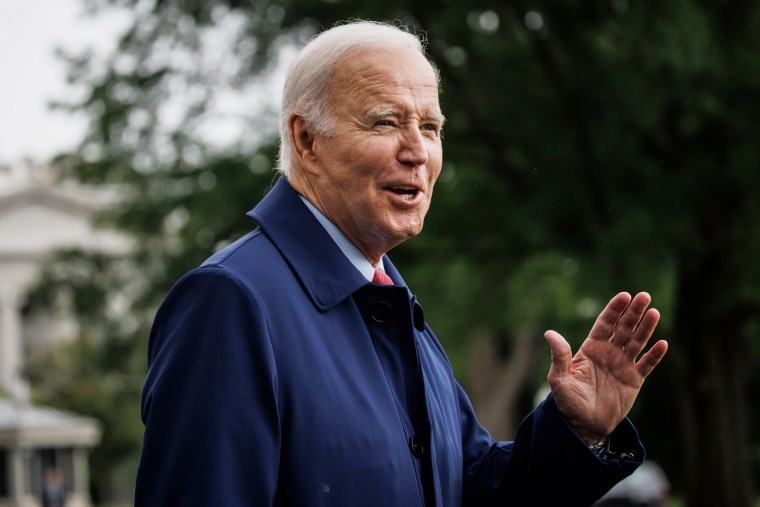As the bipartisan budget deal on the debt ceiling cleared the House and Senate last week, leaders from both parties made the case that they ended up with the better end of the agreement. Democrats, however, aren’t just pushing the claim — they’re putting their money where their mouths are.
NBC News reported yesterday, for example, on Building Back Together, which promotes the White House’s agenda, launching a six-figure ad buy to promote the budget deal, with ads that began airing this week on national cable (including MSNBC, my employer).
“The economy was at risk of collapse, held hostage by MAGA Republicans and their threat of a catastrophic default if their extreme demands weren’t met,” the ad’s narrator tells viewers. “But President Biden stood firm and negotiated a bipartisan compromise that protects Social Security and Medicare for seniors.”
This morning, the president’s re-election campaign and the Democratic National Committee launched an ad campaign of their own related to the deal, which will include billboards and this digital ad:
At least so far, there are no comparable ad campaigns from Republicans — reinforcing the impression that GOP leaders did not end up with the kind of victory they were hoping for.
What’s more, the satisfaction in Democratic circles isn’t just reflected in media strategies. The New York Times ran a good report over the weekend on some of the key substantive details.
The way administration officials see it, the full final agreement’s spending cuts are nothing worse than they would have expected in regular appropriations bills passed by a divided Congress. They agreed to structure the cuts so they appeared to save $1.5 trillion over a decade in the eyes of the nonpartisan Congressional Budget Office. But thanks to the side deals — including some accounting tricks — White House officials estimate that the actual cuts could total as little as $136 billion over the two enforceable years of the spending caps that are central to the agreement.
The Times’ article added that the White House agreed to claw back roughly $30 billion in unspent Covid funds, but much of that money “was probably never going to be spent” anyway, making it an easy concession.
None of this is likely to make congressional Republicans feel better about the agreement.

